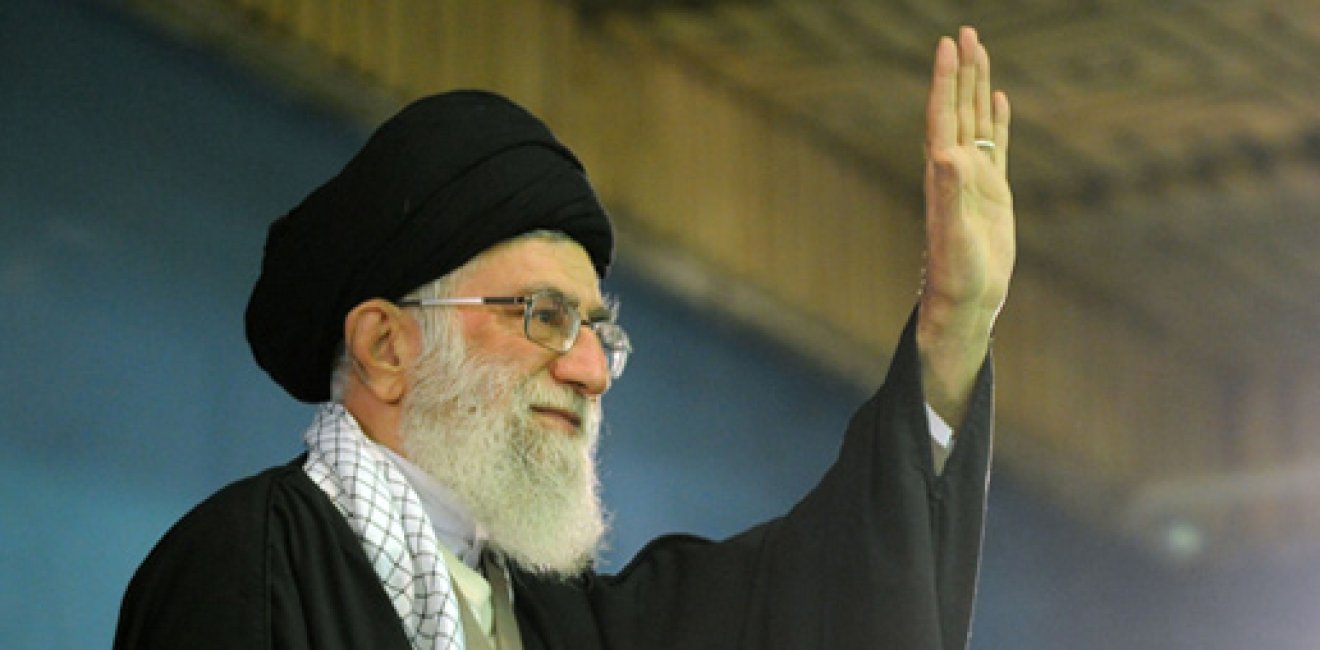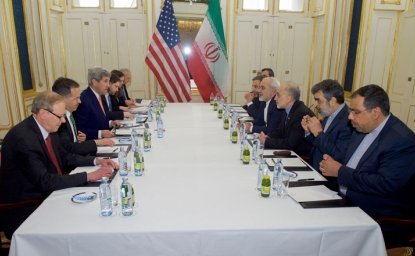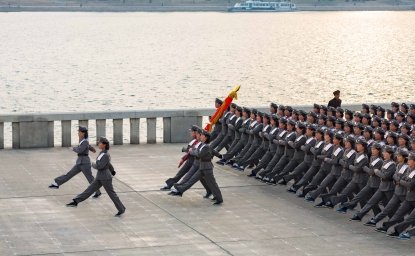A year after world powers signed an agreement on Iran’s nuclear program, the regime in Tehran continues to engage in developing ballistic missile technology, human rights violations, aggressive behavior in the region, and anti-American and anti-semitic rhetoric.
In other words, although the deal may constrain Iran’s nuclear ambitions for a specific number of years–itself not a certainty, if recent German intelligence reports are to be believed–a richer, more expansionist Iran is emerging that is routinely violating international norms and undermining the interests of the U.S. and its allies in the Middle East.
Gen. Joseph Votel, the head of U.S. Central Command, told Congress in March that Iran has become “more aggressive” since the agreement was concluded last July. Iran’s supreme leader, Ayatollah Ali Khamenei, and hard-core conservatives have consolidated their power; kept reformists at bay; and made clear that they will not tolerate movement toward more openness or expanded Western influence as a result of the agreement.
Just this week, Iran indicted–without detailing charges or evidence of alleged transgressions–several Iranians who hold dual citizenship; they and others remain in prison. Iran employs the death penalty more than almost any other country. The regime has arrested and tortured political opponents, at least 800 of whom reportedly sit in Iranian jails. The supreme leader continues to demonize the U.S. and Israel, and Iranian officials host events of Holocaust denial and distortion, such as, in May, the third cartoon festival mocking the Holocaust.
The U.S. director of national intelligence, James Clapper, last year deemed Iran the world’s foremost state sponsor of terrorism. The regime in Tehran continues to earn that designation by supporting Hamas with weapons and money, backing Lebanese Hezbollah (which even the Arab League has condemned as a terror group), and pressing Hezbollah to increase its military presence in Syria in support of the Assad regime. Iran is funneling arms to Shiite opposition groupsin Bahrain and to Houthi rebels in Yemen. It continues to pursue ballistic missile technology despite U.N. Security Council resolutions. German intelligence reports recently suggested that Tehran may have tried to procure materials that could be used for nuclear development in direct contravention of last year’s international agreement. (A State Department spokesman, referencing the International Atomic Energy Agency’s view that Iran is adhering to the accord, said the U.S. has no information showing that Iran has violated the agreement.
Iran has participated in the on-again, off-again Geneva process to reach a political settlement of Syria’s conflict, but when it comes to both Syria and Iraq, Tehran’s actions and objectives directly oppose U.S. policies. Tehran’s monetary and military support of Bashar al-Assad’s regime has sustained his government’s efforts, expanding and extending the humanitarian disaster that Syria has become. Iran has spent billions and sent fighters to prop up the Syrian regime in order to maintain ties with its only non-Sunni ally in the region and to ensure that Syria remains its window into Lebanon and the Israeli-Palestinian issue. When it comes to Iraq, Iran shares the U.S. goal of goal defeating Islamic state–but Tehran’s main priority is ensuring that it remains the key external power broker and patron of Iraq’s majority Shiites. Tehran uses Shiite militias to ensure that Sunnis do not gain the upper hand in Iraq. Some of these militias are said to havecommitted serious human rights abuses, including torture and mass killings.
All of this is happening as international sanctions weaken and foreign investment grows just one year after the global agreement was reached on Iran’s nuclear program. This is more than negative headlines; it’s an ominous trend line for anyone concerned about Iran’s growing role in the Middle East and its continued interest in one day attaining nuclear weapons.
The opinions expressed here are solely those of the author.
This article originally appeared in The Wall Street Journal






